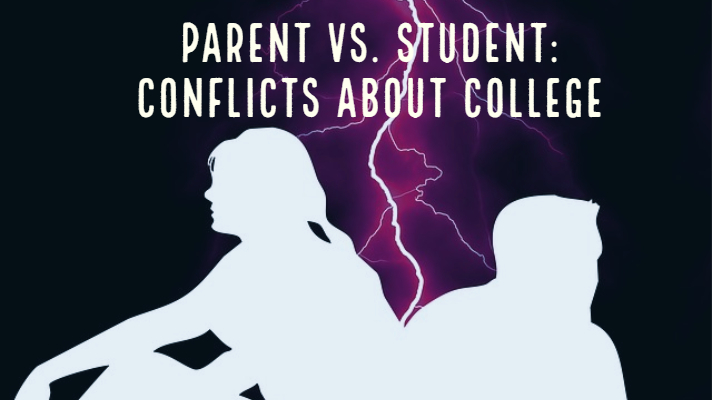
As a parent, you have the responsibility of guiding a young and impressionable mind through some of the biggest life challenges. When important decisions are concerned, you simply can’t leave it all to your kids. They simply don’t have the experience and the know-how to select the most rational choice.
College selection will obviously have a profound impact on nearly every aspect of your child’s life in the future.
One of the big questions that needs to be answered in terms of college selection is should you go big and popular or smaller and more exclusive? Both of these possibilities come with their pros and cons.
The Pros and Cons of Big vs. Small Colleges
Comparing big and small colleges side by side is the first key consideration.
Let’s begin with big colleges like UCLA, for example. The advantages of going to a big university are numerous. They include a massive campus that features all necessary learning premises, large classes that provide excellent socialization opportunities, excellent extracurricular programs and renowned faculty.
On the downside, the huge classes could also be seen as a disadvantage because students don’t get a chance to interact with instructors regularly. In addition, the administrative processes could potentially be expected to take up more time and more introverted students could easily get lost in the crowd and lose chances to stand out.
As far as small universities are concerned, there’s an intimate feel ad a chance to know most people that someone is studying with. Students get more one on one time with professors, there are usually personalized majors and better advising opportunities (in terms of career or personal development).
Small colleges, however, often lack the diversity in terms of majors that big universities offer. The number of facilities is also limited, especially for doing quality research. The variety in housing choices will be limited and some students could potentially experience social isolation.
Is it about Size or about Quality?
When making the distinction between big and small colleges, you should also consider the status of the educational facility. Elite universities differ in size and studies suggest that pursuing such academic education makes sense in the long run.
You have to find out whether the colleges your child is interested in are accredited and certified.
The ranking of the university for a particular major of interest is also important. There are dozens of rankings out there you can review to find out more. The US News and World Report university ranking is highly esteemed because key criteria are examined side by side. Some of these criteria include tuition and fees, enrollment, SAT scores, average GPA of enrolling students, the starting salaries of graduates and the starting salaries by major.
Know What Your Child Wants
The preferences of your child should also be taken in consideration.
Some young individuals tend to thrive in the bustling diversity of large universities. Others will simply feel lost and overwhelmed by the crowd and by the abundance of choices.
Emotionality does play a role and so does the predisposition of a young person towards a certain subject or another. People who pursue certain majors will get better results by going to a smaller college. Those interested in popular, well-established majors, may want to pursue a big university (especially if the major requires lab work, the availability of equipment and tons of research).
Just sit down and have a conversation to make sure that your priorities are aligned. If you can come to an agreement, you will get to work as a team in the pursuit of great academic opportunities.
Somewhere in the Middle?
A large university and a small boutique college aren’t the only two options out there.
A medium-sized college could be considered the best of both worlds. It brings the diversity and the academic options available in a large university to the comfortable peacefulness of a medium-sized campus and manageable class sizes.
Medium-sized colleges in the US are defined as those that have anywhere between 5,000 and 15,000 students. As you can see, there’s some variety here, as well. Understanding the strengths of the respective university will be the key to getting the best of both worlds without missing out on anything.
Do the research on the basis of the academic programs that your child is interested in. some medium-sized colleges could have an excellent education for a specific program while other courses may be seen as subpar. If you have a pretty good idea about what you’re looking for, you can make adequate inquiries about curricula and faculty qualifications.
There’s no universal answer to the big versus small college dilemma. The truth of the matter is that you know your child and your financial situation best. Take some time to explore the possibilities and keep an open mind. A rational approach will pay off in the end.
_______________________________________________________________________
Today’s guest post is contributed by Laura Buckler. Having an amazing approach on life, Laura Buckler is one of the greatest writers at Essays.scholaradvisor team. Her motivation and passion for her work makes her a valuable contributor. Follow Laura on twitter to gain extra-confidence!







 Ask a high school student (without a parent present) and most would tell you that they want to go to college for a) the social scene (aka partying), b) to get away from home and their parents, and c) to get a degree so they can get a high paying job after graduation. Ask a parent about the reasons they want their kids to go to college and they will tell you unequivocally that it’s for an education which will lead to a good job after graduation.
Ask a high school student (without a parent present) and most would tell you that they want to go to college for a) the social scene (aka partying), b) to get away from home and their parents, and c) to get a degree so they can get a high paying job after graduation. Ask a parent about the reasons they want their kids to go to college and they will tell you unequivocally that it’s for an education which will lead to a good job after graduation.

